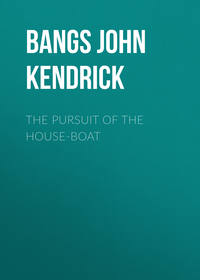 полная версия
полная версияJack and the Check Book
The woman shuddered.
"But, Richard," she protested, "you – you had put by the money to pay it long ago. What has become of it?"
"Gone, Ethelinda – gone in that ill-advised egg deal I tried to put through two years ago," sighed Wilbraham, as he buried his face in his hands to hide his grief and mortification. "I sold eggs short," he added. "You remember when that first batch of incubator hens began laying so prolifically – it seemed to me as though Fortune stared me in the face – nay, held out her hands to me and bade me welcome to a share in her vast estates. There was a great shortage of eggs in the market that year, and I went to New York and sold them by the dozens – hundreds of dozens – thousands of dozens – "
He rose up from his chair and paced the floor in an ecstasy of agitation. "I sold eggs by the million, Ethelinda," he went on, by a great effort regaining control of himself. "Eggs to be laid by hens whose great-great-great-grandmothers had yet to be hatched from eggs yet unlaid by unborn chickens."
Wilbraham's voice sank to a hoarse, guttural whisper.
"And the deliveries have bankrupted me," he muttered. "The price of eggs has risen steadily for the past eighteen months, and yesterday a hundred thousand of January, strictly fresh, that I had to buy in the open market in order to fill my contracts, cost me not only my last penny, but were in part paid for with a sixty-day note that I cannot hope to meet. In other words, Ethelinda, we are ruined."
The woman made a brave struggle to be strong, but the strain was too much for her tired nerves and she broke down and wept bitterly.
"We have but four hens left," Wilbraham went on, speaking in a hollow voice. "At most, working them to their full capacity, in thirty days from now we shall have only ten dozen eggs added to our present store, and upon that date I have promised to deliver to the International Cold Storage Company one thousand dozen at twenty-two and a half cents a dozen. Even with the mortgage out of the way we should still be securely bound in the clutch of bankruptcy."
A long silence ensued. The clock out in the hall ticked loudly, each clicking sound falling upon Wilbraham's ears like a sledge-hammer blow in a forge, welding link by link a chain of ruin that should forever bind him in the shackles of misery. Unbroken save by the banging now and then of a shutter in the howling wind without, the silence continued for nearly an hour, when the nerve-killing monotony of the ceaseless "tick-tock, tick-tock" of the clock was varied by a resounding hammering upon the door.
"It is very late," said the woman. "Who do you suppose can be calling at this hour? Be careful when you open the door – it may be a highwayman."
"I should welcome a highwayman if he could help me to find anything in the house worth stealing," said Wilbraham, as he rose from his chair and started for the door. "Whoever it may be, it is a wild night, and despite our poverty we can still keep open house for the stranger on the moor."
He hastened to the door and flung it wide.
"Who's there?" he cried, gazing out into the blackness of the storm.
A heavy gust of wind, icy cold, blew out his candle, and a great mass of sleet coming in with it fell with a dull, sodden thud on the floor at his feet, and some of it cut his cheek.
"I am a wanderer," came a faint voice from without, "frozen and starved. In the name of humanity I beg you to take me in, lest I faint and perish."
"Come in, come in!" cried Wilbraham. "Whoever you are, you are more than welcome to that which is left us; little enough in all conscience."
An aged man, bent and weary, staggered in through the door. Wilbraham sprang toward him and caught his fainting form in his strong arms. Tenderly he led him to his own abandoned chair by the fireside, where he and his faithful wife chafed the old fellow's hands until warmth had returned to them.
"A cup of tea, my dear," said Wilbraham. "It will set him up."
"And a morsel to eat, I implore you," pleaded the stranger, in a weak, tremulous voice. "The merest trifle, good sir, even if it be only an egg!"
The woman grew rigid at the suggestion. "An egg? At this time when eggs are – " she began.
"There, there, Ethelinda," interrupted Wilbraham, gently. "We have two left in the ice-box – your breakfast and mine. Rather than see this good old man suffer longer I will gladly go without mine. The fact is, eggs have sort of disagreed with me latterly anyhow, and – "
"It is as you say, Richard," said the woman, meekly, as with a hopeless sigh she turned toward the kitchen, whence in a short time she returned, bearing a steaming creation of her own make – a lustrous, golden egg, poached, and lying invitingly upon the crisp bosom of a piece of toast. It was a sight of beauty, and Wilbraham's mouth watered as he gazed hungrily upon it.
And then the unexpected happened: The aged stranger, instead of voraciously devouring the proffered meal, with a kindly glance upon his host, raised his withered hands aloft as though to pronounce a benediction upon him, and in a chanting tone droned forth the lines:
"Who eats this egg and toast deliciousReceives the gift of three full wishes —Thus do the fairy folk rewardThe sacrifices of this board."A low, rumbling peal of thunder and a blinding flash as of the lightning followed, and when the brilliant illumination of the latter had died away the stranger had vanished.
Wilbraham looked at his wife, dumb with amazement, and she, tottering backward into her chair, gazed back, her eyes distended with fear.
"Have I – have I been dreaming?" he gasped, recovering his speech in a moment. "Or have we really had a visitor?"
"I was going to ask you the same question, Richard," she replied. "It really was so very extraordinary, I can hardly believe – "
And then their eyes fell upon the steaming egg, still lying like a beautiful sunset on a background of toast upon the table.
"The egg!" she cried, hoarsely. "It must have been true."
"Will you eat it?" asked Wilbraham, politely extending the platter in her direction.
"Never!" she cried, shuddering. "I should not dare. It is too uncanny."
"Then I will," said Wilbraham. "If the old man spoke the truth – "
He swallowed the egg at a single gulp.
"Fine!" he murmured, in an ecstasy of gastronomic pleasure. "I wish there were two more just like it!"
No sooner had he spoken these words than two more poached eggs, even as he had wished, appeared upon the platter.
"Great heavens, Ethelinda!" he cried. "The wishes come true! I wish to goodness I knew who that old duffer was."
The words had scarcely fallen from his lips when a card fluttered down from the ceiling. Wilbraham sprang forward excitedly and caught it as it fell. It read:
HENRY W. OBERONSecretary, The United States Fairy Co.,3007 Wall Street"Henry W. Oberon, United States Fairy Company, Wall Street, eh?" he muttered. "By Jove, I wish I knew – "
"Stop!" cried his wife, seizing him by the arm, imploringly. "Do stop, Richard. You have used up two of your wishes already. Think what you need most before you waste the third."
"Wise Ethelinda," he murmured, patting her gently on the hand. "Very, very wise, and I will be careful. Let me see now… I wish I had … I wish I had…"
He paused for a long time, and then his face fairly beamed with a great light of joy.
"I wish I had three more wishes!" he cried.
Another crash of thunder shook the house to its very foundations, and a lightning flash turned the darkness of the interior of the dwelling into a vivid golden yellow that dazzled them, and then all went dusk again.
"Mercy!" shuddered the good wife. "I hope that was an answer to your wish."
"It won't take long to find out," said Wilbraham. "I'll tackle a few more natural desires right here and now, and if they come true I'll know that that thunderbolt was a rush message from the United States Fairy Company telling me to draw on them at sight."
"Well, don't be extravagant," his wife cautioned him.
"I'll be as extravagant as I please," he retorted. "If my fourth wish works, Ethelinda, my address from this hour on will be Easy Street and Treasury Avenue. I wish first then that this old farm was in Ballyhack!"
"Ballyhack! Last station – all out!" cried a hoarse voice at the door.
Wilbraham rushed to the window and peered out into what had been the night, but had now become a picture of something worse. Great clouds of impenetrable smoke hung over the grim stretches of a dismal-looking country in which there seemed to be nothing but charred remnants of ruined trees and blackened rocks, over which, in an endless line, a weary mass of struggling plodders, men and women, toiled onward through the grime of a hopeless environment.
"Great Scott!" he cried, in dismay, as the squalid misery of the prospect smote upon his vision. "This is worse than Diggville. I wish to heaven we were back again."
"Diggville! Change cars for Easy Street and Fortune Square!" cried the hoarse voice at the door, and Wilbraham, looking out through the window again, was rejoiced to find himself back amid familiar scenes.
"They're working all right," he said, gleefully.
"Yes," said his wife. "They seem to be and you seem to be speculating as usual upon a narrow margin. Again you have only one wish left, having squandered four out of the five already used."
"And why not, my dear," smiled Wilbraham, amiably, "when my next wish is to be for six spandy new wishes straight from the factory?"
Mrs. Wilbraham's face cleared.
"Oh, splendid!" she cried, joyously. "Wish it – wish it – do hurry before you forget."
"I do wish it – six more wishes on the half-shell!" roared Wilbraham.
As before, came the thunder and the lightning.
"Thank you!" said Wilbraham. "These fairies are mighty prompt correspondents. I am beginning to see my way out of our difficulties, Ethelinda," he proceeded, rubbing his hands together unctuously. "Instead of dreading to-morrow and the maturity of that beastly old mortgage, I wish to thunder it were here, and that the confounded thing were paid off."
The wish, expressed impulsively, brought about the most astonishing results. The hall clock began instantly to whirr and to wheeze, its hands whizzing about as though upon a well-oiled pivot. The sun shot up out of the eastern horizon as though fired from a cannon, and before the amazed couple could realize what was going on, the village clock struck the hour of noon, and they found themselves bowing old Colonel Digby, the mortgage holder, out of the house, while Wilbraham himself held in his right hand a complete satisfaction of that depressing document.
"Now," said Wilbraham, "I feel like celebrating. What would you say to a nice little luncheon, my dear? Something simple, but good – say some Russian caviare, Lynnhaven Bay oysters, real turtle soup, terrapin, canvas-back duck, alligator-pear salad, and an orange brûlot for two, eh?"
"It would be fine, Richard," replied the lady, her eyes flashing with joy, "but I don't know where we could get such a feast here. The Diggville markets are – "
"Markets?" cried Wilbraham, contemptuously. "What have we to do with markets from this time on? Markets are nothing to me. I merely wish that we had that repast right here and now, ready to – "
"Luncheon is served, sir," said a tall, majestic-looking stranger, entering from the dining-room.
"Ah! Really?" said Wilbraham. "And who the dickens are you?"
"I am the head butler of the Fairies' Union assigned to your service, sir," replied the stranger, civilly, making a low bow to Mrs. Wilbraham.
There is no use of describing the meal. It was all there as foreshadowed in Wilbraham's gastronomically inspired menu, and having had nothing to eat since the night before, the fortunate couple did full justice to it.
"Before we go any further, Richard," said Mrs. Wilbraham, after the duck had been served, "do you happen to remember how many of your last six wishes are left?"
"No, I don't," said Wilbraham.
"Then you had better order a few more lest by the end of this charming repast you forget," said the thoughtful woman.
"Good scheme, Ethelinda," said Wilbraham. "I'll put in a bid for a gross right away. There is no use in piking along in small orders when you can do a land-office business without lifting your little finger."
"And don't you think, too, dear," the woman continued, "that it would be well for us to open a set of books – a sort of General Wish Account – so that we shall not at any time by some unfortunate mistake overdraw our balance?"
"Ethelinda," cried Wilbraham, his face glowing with enthusiastic admiration, "you have, without any exception, the best business head that ever wore a pompadour!"
Thus it began. A cash-book was purchased and in its columns, like so many entries of mere dollars, Wilbraham entered his income in wishes, faithfully recording on the opposite page his expenditures in the same. The first entry of one gross was made that very night:
March 16, 19 – , Sight Draft on U. S. Fairy Co., 144Before long others followed and were used to such an effect that at the end of the year, by a careful manipulation of his resources, carefully husbanding the possibilities of that original third wish, Wilbraham found that he had expressed and had had gratified over ten thousand wishes, all of such a nature that the one-time decrepit farm had now become one of the handsomest estates in the country. A château stood on the site of the old mansion. Where the barns had been in danger of falling of their own weight were now to be found rows of well-stocked cattle-houses and dairies of splendor. The decaying stables had become garages of unusual magnificence, wherein cars of all horsepowers and models panted, eager to be chugging over the roads of Diggville, which by a single wish expressed by Wilbraham had become wondrously paved boulevards. And in the chicken-yards that had taken the place of the discouraging coops of other days thousands of hens laid their daily quota of prosperity for their owner in the plush-upholstered nests provided for their comfort by Wilbraham, the egg king, for that was what he had now become. In all parts of the world his fame was heralded, and hosts of sight-seers came daily to see the wonderful acres of this lordly master of the world's egg supply. And, best of all, there was still a balance of forty-three hundred and eighty-seven wishes to his credit!
The leading financiers of the world now began to take notice of this new figure in the realm of effort, for they soon found their most treasured and surest schemes going awry in a most unaccountable manner. No matter how much they tried to depress or to stimulate the market, some new and strange factor seemed to be at work bringing their calculations to naught, and when it became known to them that the mere expression of a wish on the part of Wilbraham would send stocks kiting into the air or crashing into the depths, no matter what they might do, they began to worry.
"To-morrow," said John W. Midas, as he talked to Wilbraham and his friends one evening at the club, "International Gold Brick Common will fall off thirty-seven points."
"Not so, Colonel," Wilbraham had retorted. "It will rise seventy points."
"Oh, it will, will it? How do you know that?" demanded Midas.
"Because I wish it," said Wilbraham.
And on the morrow International Gold Brick, opening at 96-5/8, lo and behold! closed at 166-5/8, and the friends of Midas who had laughed at Wilbraham and sold short went to the wall. A half-dozen experiences of a similar nature showed the former rulers of the financial world that Wilbraham had now become a force to be reckoned with, and for their own protection the more eminent among them called a meeting at the home of Mr. Andrew Rockernegie to consider the situation. There was too much power in the hands of one man, they thought, although that idea had never occurred to any of them before. The result of the meeting was that Colonel Midas was appointed a committee of one to call upon Wilbraham and see what could be done.
"You may not be aware of it, Mr. Wilbraham," said the Colonel, "but by your occasional intrusions into our lines of work you are making finance an inexact science. Now, what will you take to keep your hands off the market altogether? Twenty millions?"
Wilbraham laughed.
"Really, Colonel Midas," he replied, "I had no idea that you ever did business on a corner-grocery basis like that. You ought to run a vacuum cleaner over your brow. I think there are cobwebs in your gray matter. Why, my dear sir, I can capitalize this gift of mine at a billion, and pay ten per cent. on every dollar of it every year, with a little melon to be cut up annually by the stock-holders of one hundred and fifty per cent. per annum. Why, then, should I sell out at twenty millions?"
"Oh, I suppose you can have the earth if you want it," retorted Midas, ruefully. "But all the same – "
"No, I don't want the earth," said Wilbraham. "If I had wanted it I should have had it long ago. I'd only have to pay taxes on it, and it would be a nuisance looking after the property."
"On what basis will you sell out?" demanded Midas.
"Well, we might incorporate my gift," said Wilbraham. "What would you say to a United States Wish Syndicate, formed to produce and sell wishes to the public by the can – POTTED WISHES: ONE HUNDRED NON-CUMULATIVE WISHES FOR A DOLLAR. Eh?"
Midas paced the floor in his enthusiasm.
"Magnificent!" he cried. "We'll underwrite the whole thing in my office – bonds, stock, both common and preferred – for say – ahem! – how much did you say?"
"Oh, I guess I can pull along on a billion," said Wilbraham. "Cash."
Midas scratched his head. A glitter came into his eye.
"You wish to give up control of your gift?" he asked.
"You are a clever man, Colonel Midas," grinned Wilbraham. "If I had said 'yes' to that question I'd have lost my power. But I'm too old a bird to be caught that way. You go ahead and form your company, and sell your securities to the public at par, pay me my billion, and I'll transfer the business to you, C. O. D."
"Done!" said Midas, and he returned to his fellow-captains on the Street.
Wilbraham was felicitating himself upon a wondrously good stroke of business, when another caller entered his room, this time unannounced.
"How do you do, Mr. Wilbraham?" said the stranger, as he mysteriously materialized before Wilbraham's desk.
"How are you?" said Wilbraham. "Your face is familiar to me, but I can't just recall where I have met you."
"My name is Oberon, sir," said the stranger, "I am the secretary of the United States Fairy Company. There is a little trouble over your account, and I have called to see if we can't – "
Wilbraham's heart sank within him.
"It – it isn't overdrawn, is it?" he whispered, hoarsely.
"No, it isn't," said the secretary.
"By Jove!" cried Wilbraham, drawing a deep sigh of relief, and springing to his feet, grasping Oberon by both hands. "Sit down, sit down! You have been a benefactor to me, sir."
"I am glad you realize that fact, Mr. Wilbraham," said the fairy, somewhat coldly. "It makes it easier for me to say what I have come here to say. We did not realize, Mr. Wilbraham," he went on, "when we awarded you the three original wishes that you would be clever enough to work the wish business up into an industry. If we had we should have made the wishes non-cumulative. We were perfectly willing to permit a reasonable overdraft also, but we didn't expect you to pyramid your holdings the way you have done until you have practically secured a corner in the market."
Wilbraham grinned broadly.
"I have been going some," he said.
"Rather," said Oberon. "Your original three wishes have been watered until we find in going over our books for the second year that they reach the sum total of three million five hundred and sixty-nine thousand four hundred and thirty-seven, and that you still have an unexpended balance on hand of four hundred and ninety-seven thousand three hundred and seventy-four wishes. The situation is just this," he continued. "Our company has been kept so busy honoring your drafts that we are threatened with a general strike. We didn't mind building you a château and furbishing up your old chicken-farm, and setting you up for life, but when you enter into negotiations with old John W. Midas to incorporate yourself into a wish trust we feel that the time has come to call a halt. The fairies are honest, and no obligation of theirs will ever be repudiated, but we think that a man who tries to build up a billion-dollar corporation to deal in wishes on an investment of one poached egg is just a leetle unreasonable. Even Rockernegie had a trifle more than a paper of tacks when he founded the iron trust."
"By ginger, Oberon," said Wilbraham, "you are right! I have rather put it on to you people and I'm sorry. I wouldn't embarrass you good fairies for anything in the world."
"Good!" cried Oberon, overjoyed. "I thought you would feel that way. Just think for one moment what it would mean for us if the Great Wish Syndicate were started as a going concern, with a board of directors made up of men like John W. Midas, Rockernegie, and old Bondifeller running things. Why, there aren't fairies enough in the world to keep up with those men, and the whole business world would come down with a crash. Their wish would elect a whole Congress. If they wished the Senate out of Washington and located on Wall Street, you'd soon find it so, and, by thunder, Wilbraham, every four years they'd wish somebody in the White House with a great capacity for taking orders and not enough spine to fill an umbrella cover, and the public would be powerless."
Wilbraham gazed thoughtfully out of the window. A dazzling prospect of imperial proportions loomed up before his vision, and the temptation was terrible, but in the end common sense came to the rescue.
"It would be a terrible nuisance," he muttered to himself, and then turning to Oberon he asked: "What is your proposition?"
"A compromise," said the fairy. "If you'll give up your right to further wishes on our account we will place you in a position where, for the rest of your natural life, you will always have four dollars more than you need, and in addition to that, as a compliment to Mrs. Wilbraham, she can have everything she wants."
"Ha!" said Wilbraham, dubiously. "I – I don't think I'd like that exactly. She might want something I didn't want her to have."
"Very well, then," said the fairy, with a broad smile. "We'll make you the flat proposition – you give us a quit-claim deed to all your future right, title, and interest in our wishes, and we will guarantee that as long as you live you will, upon every occasion, find in your pocket five dollars more than you need."
"Make it seven and I'll go you!" cried Wilbraham, really enthusiastic over the suggestion.
"Sure!" returned Oberon with a deep sigh of relief.
"Well, dearest," said Wilbraham that night as he sat down at his onyx dinner-table, "I've gone out of the wish business."
His wife's eyes lit up with a glow of happiness.
"You have?" she cried, delightedly.
"Yes," said Wilbraham; and then he told her of Oberon's call, and the new arrangement, and was rejoiced beyond measure to receive her approval of it.
"I am so glad, Richard," she murmured, with a sigh of content. "I have been kept so busy for two years trying to think of new things to wish for that I have had no time to enjoy all the beautiful things we have."
"And it isn't bad to have seven dollars more than you need whenever you need it, is it, dearest?"
"Bad, Richard?" she returned. "Bad? I should say not, my beloved. To have seven dollars more than you need at all times is, to my mind, the height of an ideal prosperity. I need five thousand dollars at this very minute to pay my milliner's bill."
"And here it is," said her husband, taking five crisp one-thousand-dollar bills from his vest pocket and handing them to her. "And here are seven brand-new ones besides. The fairies are true to their bargain."
And they lived affluently forever afterward, although Midas and his confrères did sue Wilbraham for a hundred million dollars for breach of contract, securing judgment for twenty-nine million dollars, the which Wilbraham paid before leaving the court-room, departing therefrom with a balance of one five and two one dollar bills to the good.









